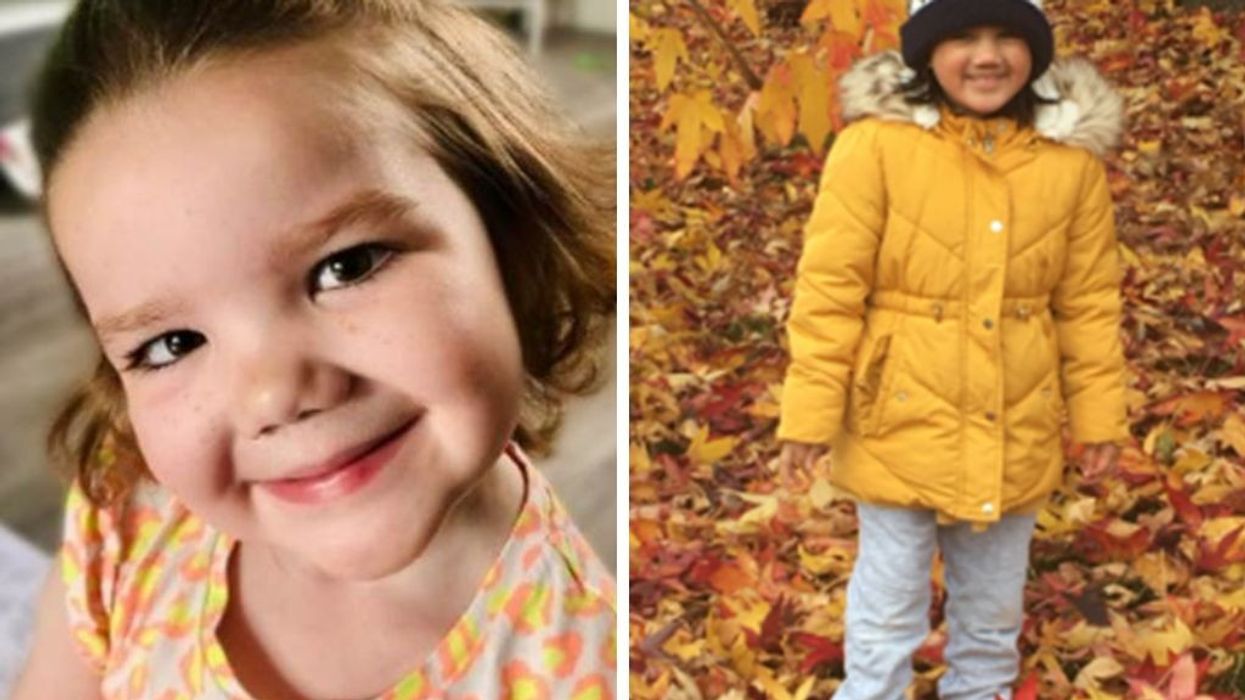Someone in the UK is diagnosed with blood cancer every 20 minutes and the number of stem-cell donors, the saviours needed to save thousands of such patients, is not adequate at the moment. DKMS, a UK-based international charity which fights blood cancer and disorders, has found that the registration of blood-cell donors post the Covid-19 pandemic has diminished by 50 per cent. Only one in three patients will find a matching donor within their families which means two in three will have to rely on generous strangers who register themselves with bodies such as DKMS.
Like many families that are looking for such generosity, those of Adeline Davidson, six; her sister Josie, three; and Shahera Khan, five, are also in desperate need for a donor to save the lives of the three little girls this Christmas.
The stories of Josie, Adeline & Shahera
Steph Davidson from Alness has had some incredibly difficult years in times of the pandemic. While she had to struggle with the difficulties that the pandemic posed, she had an added concern for her two young daughters -- Adeline and Josie -- who were diagnosed with blood cancer. Both the girls need life-saving stem-cell donations from generous souls so that they can lead a normal life.
Josie was also diagnosed with blood cancer last year following the diagnosis of Adeline. DNAJC21 -- the genetic condition the girls suffer from -- causes eyesight and hearing issues, bone abnormalities with very little to no enamel that hinders their teeth from growing to their full length and more.
Both the sisters are regularly monitored until a cent per cent match is found, as a wrong transplant will only make things worse. Unfortunately, no donor has been found yet. Steph has appealed for more people to register as a donor hoping that someone will save her daughters’ lives.
She said, “The majority seems to have this idea, that it is a gruesome, horrible process but in fact it is just a cheek swab. To think that such an easy procedure could save someone’s life, there really isn’t anything to be afraid of or have any doubts about. It helps so many families like ours and is important to do as there are so many in need.”
Shahera, on the other hand, suffers from a rare immunodeficiency disorder which means she is incapable of fighting off viruses. Her best chance for survival lies in receiving a blood stem cell transplant from a stranger who is genetically similar to herself or she has the risk to catch a fatal infection. Shahera's problem is worsened by the fact that her Bangladeshi heritage makes it harder to find a matching donor for her, thanks to a low rate of registration among the UK's Asian community.
Typically, donors are from the same ethnic backgrounds as the recipients, and the lack of donor diversity leads to a lower survival chances for blood-cancer patients from Asian ethnic backgrounds. In fact, such patients have only 20 per cent chance of finding the best possible stem-cell donor match, as against 69 per cent for those from northern European backgrounds.
Regretting their situation, Shahera's mother Amina said, “It’s heart-breaking that there is no match for Shahera and other people from Asian backgrounds. Looking at her, you wouldn’t believe she was ill. You can’t really tell, but what is going on inside is a totally different story.
"We just want her to be cured soon, so she can have the happy, healthy, long life she deserves. We don’t want her to miss out on anything. We need to find Shahera a donor as soon as possible. We want to raise awareness in the Asian community so people can come forward – not only to help Shahera but for anyone who needs a donor.”
About stem-cell donation
There are apprehensions around blood stem cell donation – of the process itself and of having a ‘depleted’ supply of stem cells – but this just isn’t the case. The process is incredibly easy to do and is similar to donating blood.
Around 90 per cent of all donations are made through a method called peripheral blood stem cell (PBSC). In this method, blood is taken from one of the donor’s arms and a machine extracts the blood stem cells from it. The donor’s blood is then returned to them through their other arm. This is an outpatient procedure that is usually completed in 4-6 hours. In just 10 per cent of cases, donations are made through bone-marrow collection. This is done under general anaesthesia which causes no pain.
More donors needed from minority backgrounds
Donors from minority ethnic backgrounds make up just 13.1 per cent of the UK stem cell register and since patients from Black, Asian or ethnic minority patients tend to have more varied tissues – they have a bigger and more specific biological requirement of a donor than a white patient. People from all backgrounds come forward to register with charities such as DKMS to give those with blood cancer the best chance of living a normal and healthy life.
If you are between 17 and 55 of age and in generally good health, take the first step by going to DKMS to register as a potential stem donor and visit dkms.org.uk today.




